The 10 Money Secrets
1. Everyone has as much money as matches his expression.

Expression is closely linked to the personality of a person, with the lifestyle that matches his or her attitude.
If a man thus strives to gain a fortune of let’s say 100 million which does not matches his innermost attitude, loss will miraculously reduce his riches repeatedly to the 10 million that conforms to him and his lifestyle. And he will be happy with it. It is the attitude that counts.
So, if you do not possess as much money as matches you, then change your attitude.
2. Everybody has to find his or her own attitude towards money.
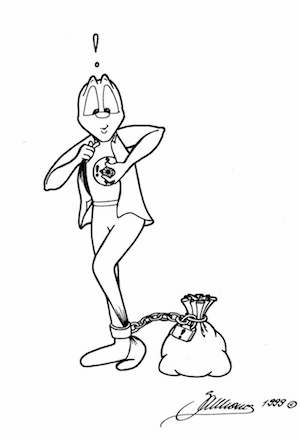
To this end, it is important to eliminate prejudices as the following: “Money you have inherited is not as good as money you have worked for.” Or “Women don’t know anything about money.” It is necessary to make many a woman realize that she shouldn’t simply say: “When it comes to money management, my husband is in charge.”
You have to leave such snare behind and build a personal relationship with money.
3. Money is closely related to individual ability.
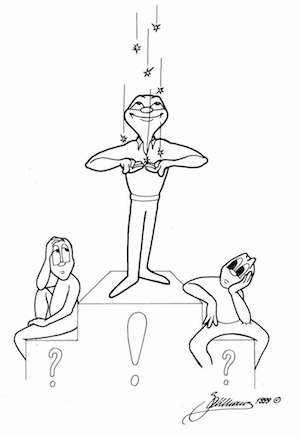
It may be a talent that is very much valued by others or makes a person unique.
The electrifying voice of Elvis Presley possessed an equally unique quality as Tiger Wood’s unrivalled charismatic way to play golf today.
Every person has unique talents – he or she only has to discover and exploit them.
4. Serendipity
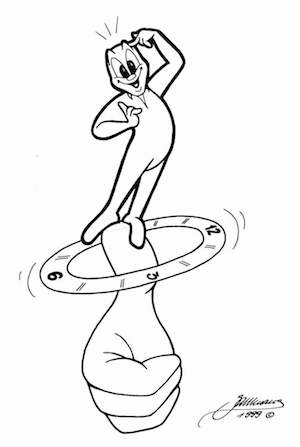
What is the connection between money and serendipity? Serendipity derives from the old name for Ceylon (present day‘s Sri Lanka): Serendip. In today‘s parlance it refers to a discovery made by coincidence and ingenuity.
An example of serendipity is the discovery of ether as an anesthetic. Around 1840, the physician Crawford Williamson Long used to join his friends in a game during which they exhilarated by inhaling ether. The physician noticed that participants did not feel any pain when bumping against furniture and falling onto the ground. This discovery by happenstance gave him the clever idea of using ether as a sedative in surgery.
Serendipity also applies to dealing with money. Money shouldn’t be the goal, yet on the way to achieve a goal I may win a fortune. Serendipity has much to do with the secret of being at the right place at the right moment. Onassis once remarked: “You don't need to chase after money, let it come to you.”
5. Who only wants to make money, won’t make any.
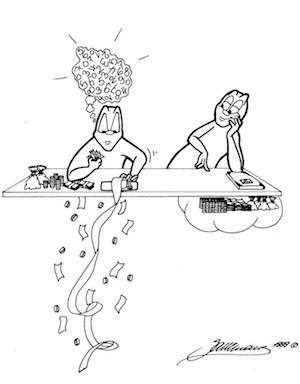
Money has much to do with happenstance, in the sense of something that happens – for example, when attempting to achieve a certain goal.
“The greatest thing that a man can do in this world is to make the most possible out of the stuff that has been given to him. This is success and there is no other,” says O.S. Marden in his book “Architect of Fate”.
Who only wants to make money, won’t make any. Who aims at a goal, on the other hand, will achieve it – and perhaps win a fortune along the way.
6. Money requires trust and respect.

Who has no confidence in himself and others, who doesn’t trust his own abilities, will hardly make any money.
Who has earned it, though, has to treat it with respect: who doesn’t respect the magical power of money, will lose it. Money wants to be cherished and preserved, carefully invested and spent.
7. Money or wealth – it’s up to you.
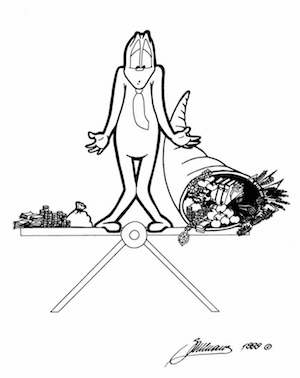
Money is the beginning, that’s true, but only wealth opens the doors to dimensions of another kind… Money is kept in the bank. Wealth, in contrast, means autonomy, giving you the freedom to do what suits you.
Money is just a hackneyed form of true wealth. As expression of an affluence of material and inner material values, wealth is a fascinating goal. On your way from money to wealth rewarding adventures await you.
8. Nothing is possible without a vision.

Vision derives from the Latin term visio (seeing, sight). Having a vision means carrying an inner image of what you aim to achieve. Strong inner images materialize. The vision urges to fall into place in outer reality. Without an inner concept of want you want to achieve, there will be no success. Success is related to succession and succeeding, hence succeeding from the inner image. Every great discovery, every bold invention, every major sporting achievement, every great fortune was and still is based on a vision.
How do the inner images look that generate success? In terms of money, is it enough to envision six-figure sums, for example, to subsequently become a millionaire? The vision of a large bank account is not enough. The inner image must include a meaning. Something that is bigger than my own ego. Something I can believe in and gives me strength. The road to realize the inner image may be long and paved with setbacks. Meaning creates persistence and the confidence that the goal will be achieved. It is vital that the inner image conforms to the personality. Everybody must develop his or her own vision from within himself or herself and from his or her own talents.
Develop your own vision, lay the basis for your success – you see, nothing will happen without a vision.
9. The Monopoly Principle.

Monopoly is a fascinating game. Everybody is throwing dice and going in circles, as at the stock exchange. Everybody has a chance to invest.
In the long term, only those who choose to build assets slowly and steadily will win – in the game as at the stock exchange. This is the secret of Monopoly. Only an asset, like a real estate or a share, creates added value and income. Only an asset makes luxury possible, capital alone does not.
Capital alone is a hollow promise. Only in commitment it becomes alive.
10. Give - and you will be given!

If you want money, give the other person what he or she deems more precious than money. People pay with money for many things, for vital necessities, but also for cars, fashionable clothes, amazing trips, for intellectual nourishment in the form of books, CDs, newspapers etc.
To give intelligently is challenging. Whole marketing departments try to find out on which products the customer willingly spend money. Newspapers, for example, investigate how to become most attractive for their customers and what requirements they should meet.
If I have something to give, the following questions arise: What makes my offer so attractive that the other person will pay for it? What value does he or she attach to it? What can I offer in return?
Give - and you will be given! A primal principle of human trade and exchange.